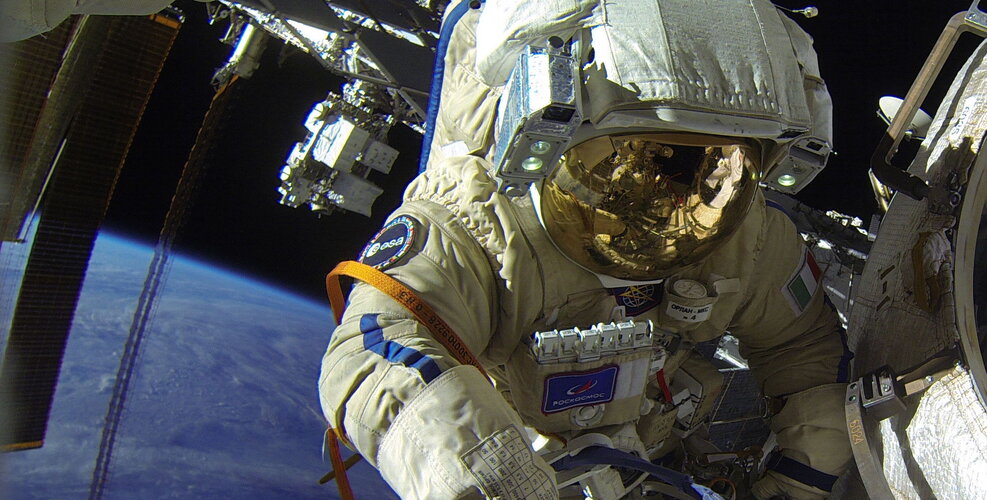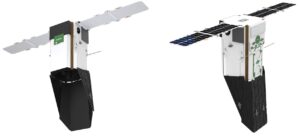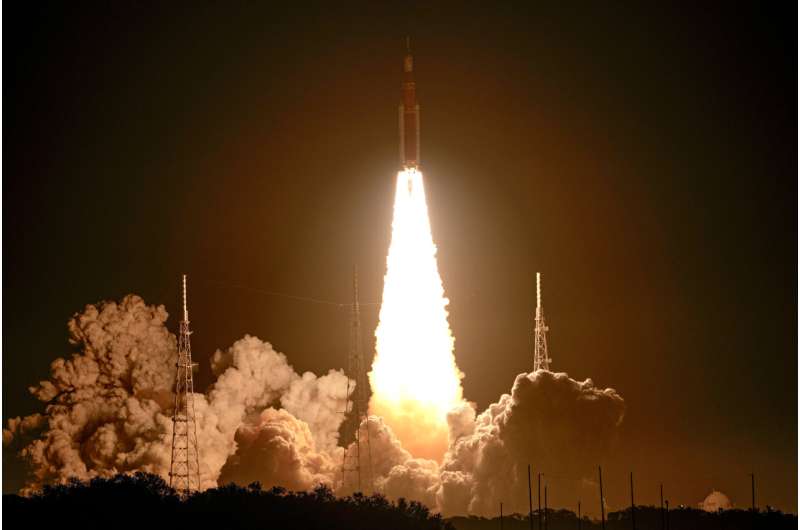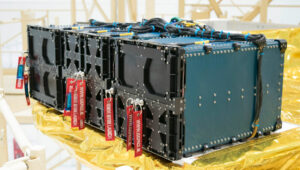Rocket Factory Augsburg to use test infrastructure at DLR Lampoldshausen
Thursday, 17 November 2022 11:44 Space start-ups with micro-launcher projects will be important players in European space transport in the future. So-called micro-launchers are smaller rockets that can carry payloads of up to one tonne into low Earth orbit. They complement the capabilities of the established Ariane European launcher and will accelerate the development of new business areas and technologies in the launcher marke
Space start-ups with micro-launcher projects will be important players in European space transport in the future. So-called micro-launchers are smaller rockets that can carry payloads of up to one tonne into low Earth orbit. They complement the capabilities of the established Ariane European launcher and will accelerate the development of new business areas and technologies in the launcher marke Try, Try Again: Sols 3655-3656
Thursday, 17 November 2022 11:44 Yesterday we weren't able to use the arm and thus weren't able to do contact science, but a short drive got us into a better position. Unfortunately, the dust removal tool still wasn't safe to use at our location, so the team decided to make another drive to try again for contact science on the weekend. Even though the plan wasn't what we expected coming in to today, we were still able to make t
Yesterday we weren't able to use the arm and thus weren't able to do contact science, but a short drive got us into a better position. Unfortunately, the dust removal tool still wasn't safe to use at our location, so the team decided to make another drive to try again for contact science on the weekend. Even though the plan wasn't what we expected coming in to today, we were still able to make t Space exploration goes underground
Thursday, 17 November 2022 11:44 Is there life in Martian caves? It's a good question, but it's not the right question-yet. An international collaboration of scientists led by NAU researcher Jut Wynne has dozens of questions we need asked and answered. Once we figure out how to study caves on the Moon, Mars and other planetary bodies, then we can return to that question.
Wynne, an assistant research professor of cave ecol
Is there life in Martian caves? It's a good question, but it's not the right question-yet. An international collaboration of scientists led by NAU researcher Jut Wynne has dozens of questions we need asked and answered. Once we figure out how to study caves on the Moon, Mars and other planetary bodies, then we can return to that question.
Wynne, an assistant research professor of cave ecol NASA Awards SpaceX Second Contract Option for Artemis Moon Landing
Thursday, 17 November 2022 11:44 NASA has awarded a contract modification to SpaceX to further develop its Starship human landing system to meet agency requirements for long-term human exploration of the Moon under Artemis.
With this addition, SpaceX will provide a second crewed landing demonstration mission in 2027 as part of NASA's Artemis IV mission.
"Returning astronauts to the Moon to learn, live, and work is a
NASA has awarded a contract modification to SpaceX to further develop its Starship human landing system to meet agency requirements for long-term human exploration of the Moon under Artemis.
With this addition, SpaceX will provide a second crewed landing demonstration mission in 2027 as part of NASA's Artemis IV mission.
"Returning astronauts to the Moon to learn, live, and work is a Artemis I captures new images of Earth, the moon and Orion spacecraft
Thursday, 17 November 2022 11:44 Cameras on board NASA's Artemis I began capturing images Wednesday with new views of Earth, the moon and the Orion spacecraft.
After several delays Artemis I blasted off early Wednesday morning from the Kennedy Space Center in Cape Canaveral, Fla. Before returning to Earth, NASA's Artemis I will travel 40,000 miles beyond the moon collecting engineering data.
Four of the 24 camer
Cameras on board NASA's Artemis I began capturing images Wednesday with new views of Earth, the moon and the Orion spacecraft.
After several delays Artemis I blasted off early Wednesday morning from the Kennedy Space Center in Cape Canaveral, Fla. Before returning to Earth, NASA's Artemis I will travel 40,000 miles beyond the moon collecting engineering data.
Four of the 24 camer Looking to Artemis I for a return to the moon
Thursday, 17 November 2022 11:44 On Nov. 16, NASA successfully launched the Artemis I mission after several launch delays. Artemis I is an uncrewed test flight featuring a Space Launch System (SLS) rocket that will send the Orion spacecraft around the moon and back to test the system and hardware extensively before future flights with astronauts.
The first of several missions, Artemis I will pave the way for subsequent mi
On Nov. 16, NASA successfully launched the Artemis I mission after several launch delays. Artemis I is an uncrewed test flight featuring a Space Launch System (SLS) rocket that will send the Orion spacecraft around the moon and back to test the system and hardware extensively before future flights with astronauts.
The first of several missions, Artemis I will pave the way for subsequent mi Shenzhou XIV taikonauts perform third spacewalk
Thursday, 17 November 2022 11:44 The Shenzhou XIV crew on board the orbiting Chinese Tiangong space station is conducting their extravehicular activities for the third time, according to the China Manned Space Agency.
Commander Chen Dong has already gotten out of the space station, and crew member Cai Xuzhe will subsequently exit. Taikonaut Liu Yang is inside the core module to support her crewmates, the agency said in a
The Shenzhou XIV crew on board the orbiting Chinese Tiangong space station is conducting their extravehicular activities for the third time, according to the China Manned Space Agency.
Commander Chen Dong has already gotten out of the space station, and crew member Cai Xuzhe will subsequently exit. Taikonaut Liu Yang is inside the core module to support her crewmates, the agency said in a A new look for the ESA astronaut patch
Thursday, 17 November 2022 09:30
In October 2022, an updated ESA astronaut patch celebrated the joining of ESA’s newest Associate Member, Slovakia. The new patch adds the Slovakian flag to a design that has evolved over the decades to represent ESA’s growing space family.
Tomorrow's technology at ESA
Thursday, 17 November 2022 07:23
The ESA Council at Ministerial level, CM22, is a time for critical decisions. In November 2022, ESA’s Member States, Associate States and Cooperating States will come together to strengthen Europe’s space sector and ensure it continues to serve European citizens.
Einstein Industries Ventures joins ESA Investor Network
Thursday, 17 November 2022 07:00
ESA’s Investor Network continues to grow, with Einstein Industries Ventures as its latest member via the signature of a collaboration agreement.
Over the next ten years, Einstein Industries Ventures’ management team targets a fund worth €300 million to invest in Europe's leading growth-stage New Space downstream technologies, Earth observation and sensor technology.
Spire Global reveals larger, new-gen 16U satellite bus
Wednesday, 16 November 2022 20:22
Spire Global has unveiled a new-generation satellite bus to meet demand for larger and more capable satellites.
The post Spire Global reveals larger, new-gen 16U satellite bus appeared first on SpaceNews.
NASA capsule on way to moon after launch by giant new rocket
Wednesday, 16 November 2022 19:27
A space capsule hurtled toward the moon Wednesday for the first time in 50 years, following a thunderous launch of NASA's mightiest rocket in a dress rehearsal for astronaut flights.
No one was on board this debut flight, just three test dummies. The capsule is headed for a wide orbit around the moon and then a return to Earth with a Pacific splashdown in about three weeks.
After years of delays and billions in cost overruns, the Space Launch System rocket roared skyward, rising from Kennedy Space Center on 8.8 million pounds (4 million kilograms) of thrust and hitting 100 mph (160 kph) within seconds.
Apple bringing SOS via satellite services to Europe in December
Wednesday, 16 November 2022 19:25
Apple is extending its SOS via satellite service for iPhone 14 smartphones to parts of Europe in December, the company said Nov. 15 after bringing the capability online across the United States and Canada.
On the NRO’s wish list: AI technologies to manage satellites and data
Wednesday, 16 November 2022 18:47
NRO Director Chris Scolese said the agency wants to use artificial intelligence and machine learning to orchestrate the operation of imaging satellites and to analyze data in orbit
The post On the NRO’s wish list: AI technologies to manage satellites and data appeared first on SpaceNews.
SpaceRyde announces multiple launches with ISILaunch
Wednesday, 16 November 2022 18:00
Canadian launch startup SpaceRyde revealed plans Nov. 15 to launch four private commercial flights for ISILaunch, a subsidiary of Innovative Solutions In Space B.V. of the Netherlands.
The post SpaceRyde announces multiple launches with ISILaunch appeared first on SpaceNews.

